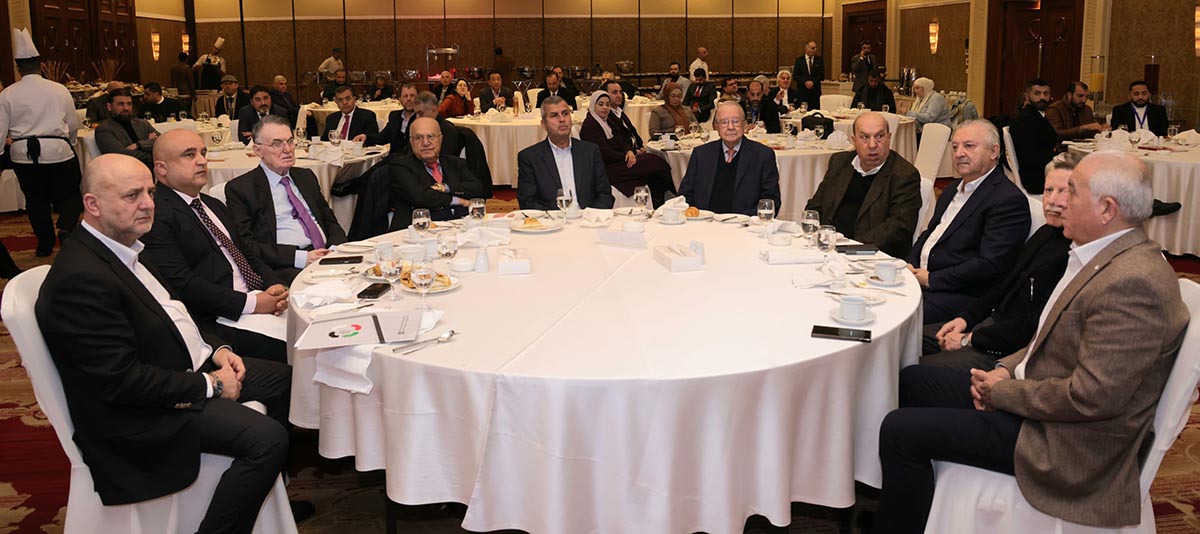Minister of Energy and Mineral Resources Saleh Kharabsheh called on the private sector to implement, develop, and construct energy and mining projects to contribute to the Economic Modernization Vision and achieve targeted national economic growth.
Speaking at a meeting organized by the Jordanian Businessmen Association on Thursday, Kharabsheh emphasized the significant investment opportunities available in the energy and mining sectors, which require financing and partnerships. He encouraged Jordanian companies to participate through coalitions, highlighting that local contributions to investments have a greater impact on the national economy.
“We have major tenders available for Jordanian companies, and we are ready to provide all necessary facilities,” Kharabsheh stated, underlining the importance of transforming energy challenges into opportunities to become key economic drivers in Jordan.
He noted that Jordan aims to meet its natural gas needs by 2033 and anticipates numerous green hydrogen projects. The new energy strategy seeks to increase the contribution of renewable energy to electricity generation to 50 percent by 2030, enhancing its share in the overall energy mix.
Kharabsheh underscored the government’s commitment to reducing production costs in the electricity sector, increasing company revenues, minimizing debt, and ensuring financial equity among all stakeholders.
He highlighted the $800 million hydroelectric power storage project at the Mujib Dam, with a capacity of 450 megawatts, as part of Jordan’s efforts to enhance energy infrastructure, meet growing demands, and reduce reliance on imported energy.
Kharabsheh explained that the ministry’s strategy, aligned with the Economic Modernization Vision, aims to secure energy supply and diversify sources, boosting renewable energy and local contributions to electricity generation while relying on natural gas.
He acknowledged the achievements and continuous development within Jordan’s energy sector but noted ongoing challenges, particularly the high cost of energy affecting economic sectors.
Kharabsheh highlighted the role of the Economic Modernization Vision in strengthening the mining sector as part of high-value industries, contributing to economic development, increasing gross domestic product (GDP) contributions, and generating job opportunities. He noted that the ministry has signed several memoranda of understanding for feasibility studies on various minerals, focusing on new resources beyond phosphate and potash.
He also detailed the ministry’s efforts to achieve the Economic Modernization Vision targets in the mining sector, aiming for GDP growth and job creation in the coming years.
Kharabsheh outlined plans to deliver gas to industrial clusters nationwide through a natural gas network to reduce production costs and enhance export competitiveness. He emphasized the industrial sector’s role as a key driver of economic development and its importance in alleviating unemployment.
He noted that Jordan is divided into 12 regions for oil exploration and drilling, with ongoing work in seven areas, along with geophysical surveys for raw materials. He stressed that strategic raw materials would not be exported to maximize added value and support transformation industries.
Meanwhile, the Chairman of the Jordanian Businessmen Association, Hamdi Tabbaa, pointed out challenges facing the energy and mining sectors, including geopolitical issues, reliance on imports for primary energy sources, high electrical loss in distribution networks, and the costly production of oil from oil shale linked to global oil prices.
